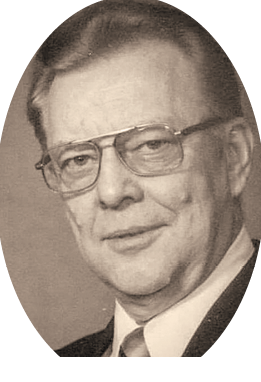Let us assume that a teacher who lived a thousand years ago had written an “autograph” [that is, a document hand-written by the author himself.] He had some students who appreciated the value of their teacher’s wisdom. In order to preserve his writing for themselves and future generations, they each made a handwritten copy of it; and then the original was lost. The next generation made hand written copies of the copies of the original and so on and on. These all, written in the same language as the autograph, are called “manuscripts,” and, no doubt, many of these are also lost.
Over the years, the language of the people changed from that of the original autograph. Gradually scholars, instead of making additional copies of existing manuscripts, translated one or more of them into the language of the day. These translations are called “versions.” The version that is derived from a faulty or incomplete manuscript, of course, will also be faulty. The more reliable the source manuscripts, the more accurate the resulting version.
The autographs of the prophets, apostles and evangelists have all been lost; probably, as one writer states, for the best—since otherwise men would be tempted to revere the paper and ink rather than the contents. But there are in existence almost five thousand manuscripts of various ages and types . . . and the number increases as new discoveries are made. The Word of God has been preserved over the centuries; He has seen to that.
Of the ancient “versions” there are about twenty. Modern translations number nearly a hundred times that amount. English versions alone number more than twice that amount.
COPY ERRORS
Remembering that all manuscripts are handwritten copies, it is easy to see how errors could creep into them. Groups of scribes receiving dictation could commit “errors of hearing.” The words to, too, and two all sound the same but have different meanings. The original languages of the Bible have similar peculiarities. “Errors of seeing” happened too. This is understandable when you realize that the oldest Hebrew manuscripts were written in block letters without vowels, punctuation or spaces between words. To illustrate, Genesis 1:1, using our alphabet, would have looked like this: NTHBGNNNGGDCRTDTHHVNND.
The Greek of the New Testament was similar, except that this language contained vowels. Even so, the eyes could be deceived. How, for example, would you read this: GODISNOWHERE. One might see GOD IS NOW HERE, while another might see GOD IS NOWHERE.
Such errors of the eye, ear, and hand were certainly unintentional, as were most of the errors of omission and addition. Sometimes, a scribe would copy a word twice, sometimes he would skip a few lines because of similar words at the end of two lines. Occasionally, a scribe would insert marginal notes from a previous copy into the body of the text, thinking undoubtedly that they belonged there. Some errors, it seems, were intentional, although not dishonestly so. Almost always the scribe simply wanted to “correct” what seemed to him to be an error in the text. . . . For example, two similar statements of Jesus from different accounts were modified in order to bring them into perfect agreement with each other.
NO CAUSE FOR ALARM
The Lord did not inspire the copyists; He did inspire the holy writers. What they have written has been reconstructed for us by dedicated scholars from many manuscripts, numerous versions, and quotations from the Scriptures found in the writings of the church fathers. . . . It is comforting to know, furthermore, that no doctrinal truth is in question because of errors in the Greek text. You may “search the Scriptures” with confidence.
In this series we are reprinting Spokesman articles by early leaders in the CLC. Pastor James Albrecht is the curator of the series. Rev. Elton Hallauer (1924-2021) was a leader in the formation of the CLC. He was the longtime pastor of Bethel Lutheran Church in Morris, Minnesota. He also served in various synodical positions, including Chairman of the ILC Board of Regents and Vice President of the CLC. This article is from the Lutheran Spokesman of June 1971.
1924-2021


